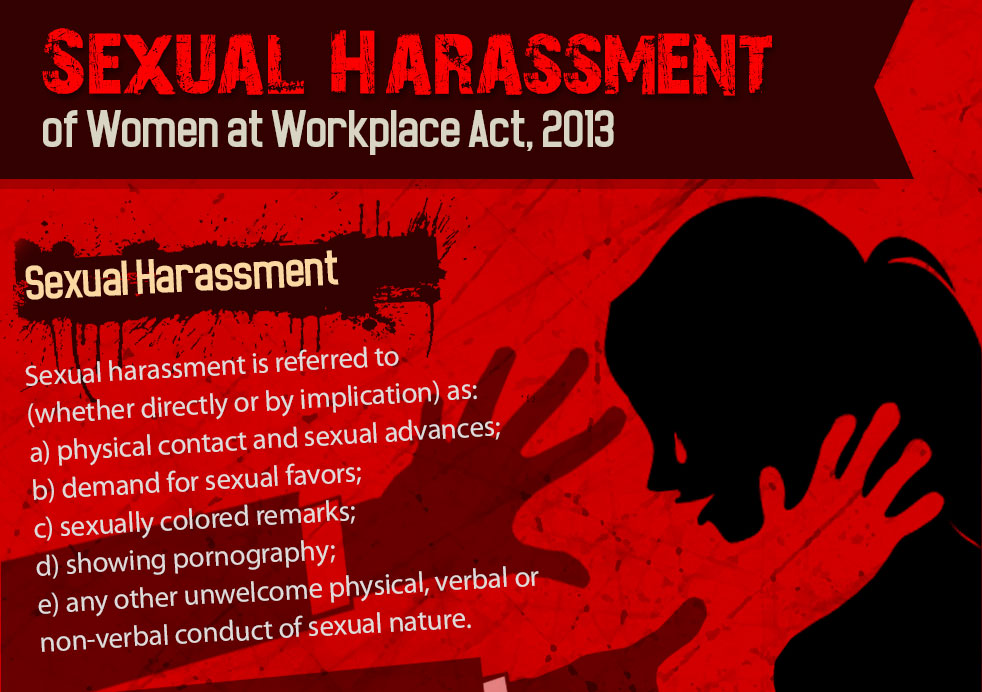The Madras High Court has been moved to highlight the lacklustre implementation of laws concerning sexual harassment in the workplace, particularly at factories and mills across Tamil Nadu.
A petition filed by one R Karuppuswamy came up for hearing today before the First Bench of Chief Justice Indira Banerjee and Justice M Sundar.
Arguing on behalf of the petitioner, Advocate P Selvi, inter alia, emphasised on the plight of lower income workers in mills and factories in the face of poor implementation of sexual harassment laws.
Alluding to the Harvey Weinstein debacle, it was remarked that, given their poor economic status, it was not as if the victims could spread the word on social media to resolve their hardship. Rather, the duty fell upon the government to ensure that the laws were duly carried out.
Instead, she pointed out, the petitioner was constrained to file multiple RTI applications and thereafter appeal the same to obtain information regarding the status of their implementation.
In his petition, Karuppuswamy has raised various issues highlighting the non-compliance of the mandate contained in the Sexual Harassment of Women at Work Place (Prevention, Prohibition and Redressal) Act, 2013, enacted following the 1997 Vishaka case. The petition also draws attention to the poor implementation of the Tamil Nadu Hostels and Homes for Women and Children (Regulation) Act, 2014.
Notably, he argues that functional Internal Complaints Committees (ICCs) are yet to be constituted in private and public establishments including educational institutions, mills, factories and other workplaces, as contemplated under Section 4 of the 2013 Act.
As per the petition, the authorities have also failed to implement provisions under the Act concerning the submission of annual reports on cases of sexual harassment in the workplace, organization of awareness and training programmes etc.
Further, the government has also not ensured compulsory registration of homes and hostels for women and children as contemplated under the Tamil Nadu Hostels and Homes for Women and Children (Regulation) Act, 2014.
In this context, the petitioner has submitted that,
“It is evident from the incidents of girls escaping from the hostels and homes in mills and factories that the conditions of the hostels are deplorable and there is no safety for working women and girls. Girls and women are subjected to sexual harassment at the hostels and homes and there is no check, despite the Collector being authorized to carry out routine checks in such places.”
The petition has also referred to several RTI representations made at various times seeking for reports regarding the implementation of these laws. From among the scattered responses received, it was gauged that the authorities were ill-informed about the provisions of the Act. While in several cases no ICC was formed at all, in others, the petitioner found flaws in their constitution and functioning.
“It is evident from the responses from the districts of Coimbatore, Thiruppur, Erode and Dindigul that the statutory Authority, the District Officer has no knowledge about the Act and ironically, they are tasked with the duty to publicise the Act.
While Section 7 of the Act contemplates an eminent woman to be nominated as Chairperson, LCC in Coimbatore and Dindigul are the District Collector of their respective districts. Dindigul has the Deputy Superintendent of Police as a member to the LCC, which are against the ambit and utter disregard to the provisions of the Act.”
The petitioner has therefore prayed that the Court direct the concerned authorities to constitute ICCs according to the Sexual Harassment Act, 2013 and further monitor hostels and homes for working women and children in accordance with the Tamil Nadu Hostels Regulation Act.
On hearing the submissions, the Court has directed that status reports be submitted by concerned district authorities across the state. The case has been posted for further hearing on December 11, 2017.

November 8, 2017 at 5:18 pm
The PIL should be considered by the court immediately and monitor the implementation of harassment laws